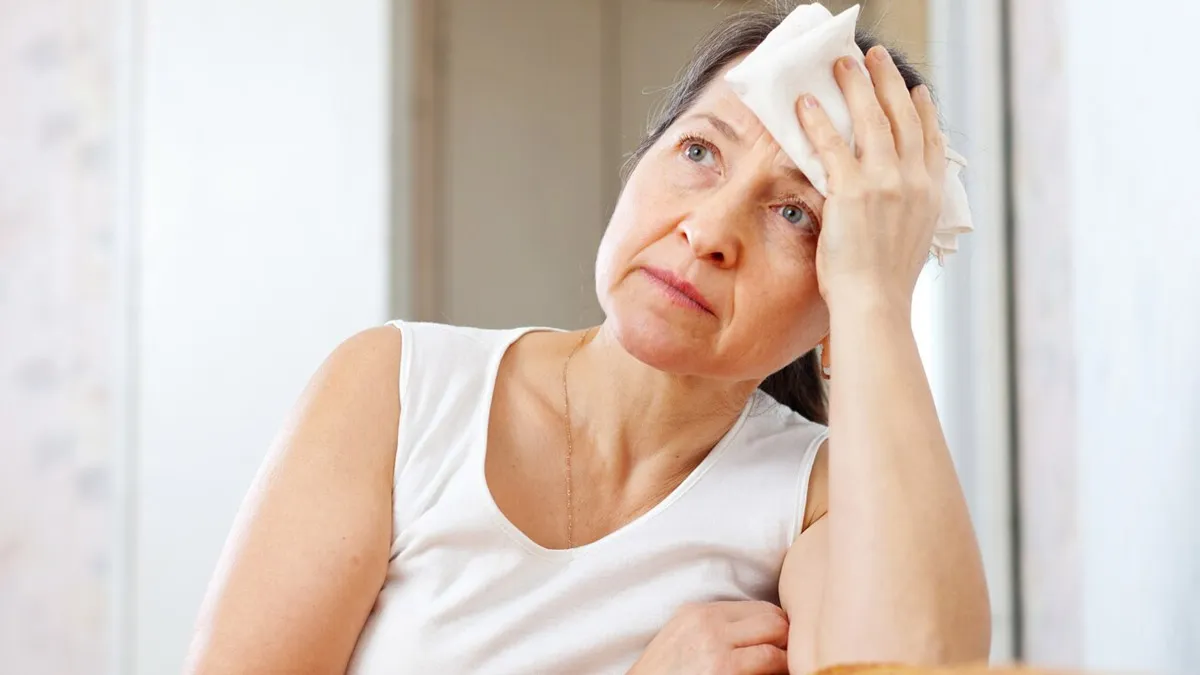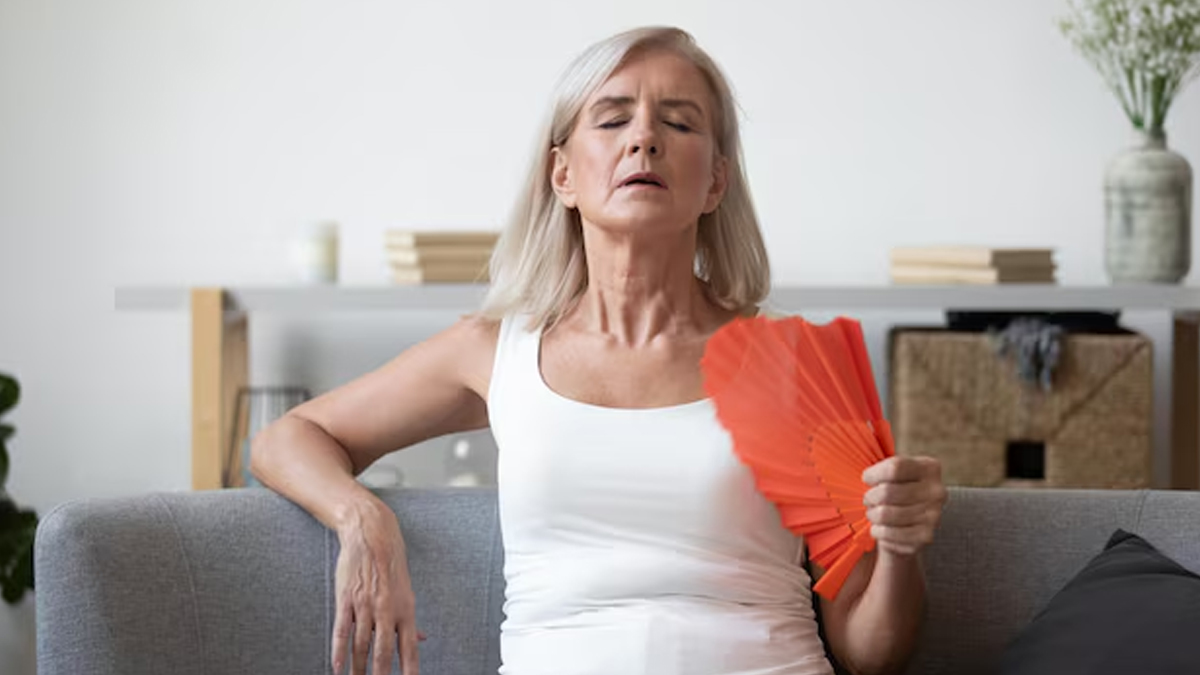
Menopause refers to the end of the menstrual cycle, after which a woman cannot conceive or become pregnant naturally. During this time, several changes in the body occur, including hormonal changes, particularly a decline in the female sex hormones like oestrogen and progesterone. This in turn leads to various symptoms. A hot flash is one of the most common symptoms, characterised by a sudden feeling of intense heat, typically in the face, neck, and chest, often accompanied by sweating and sometimes chills. Dr Dheera Samdariya, Consultant, Urogynaecology, Jaslok Hospital & Research Centre, Mumbai, explains the reason behind it and shares common triggers.
Table of Content:-
Also Read: When Menopause And Hypothyroidism Strike At The Same Time: How To Tell The Difference
Why Menopausal Women Experience Hot Flashes

Hot flashes reportedly affect approximately 85% of menopausal women. According to a studypublished in the Journal of Mid-Life Health, about 55% of women experience hot flashes as they enter the transition phase toward menopause signalled by the beginning of menstrual irregularity.
But why do hot flashes become so prevalent during menopause?
Dr Samdariya explains, "Hot flashes are mediated by thermoregulatory dysfunction at the level of the hypothalamus and are induced by oestrogen withdrawal." This means hot flashes happen when the body’s internal thermostat, controlled by the hypothalamus, stops working properly, usually due to a drop in oestrogen levels.
In women who experience hot flashes, the body becomes more sensitive to even slight changes in temperature, the doctor further explains. While younger, premenopausal women start cooling down when their body temperature rises by about 0.4°C, menopausal women react to much smaller increases.
That sudden rush of warmth is caused by the body sending more blood to the skin—especially to the hands and face—even when it’s not needed. Hormone therapy with oestrogen can help by resetting the body’s internal thermostat and significantly reducing hot flashes.
What Are The Triggers Of Hot Flashes During Menopause?

Several factors can trigger hot flashes during menopause. Common risk factors are obesity, reduced physical activity, and low oestrogen levels. Dietary changes also play a crucial role. Some of the foods Dr Samdariya advises you to eat and avoid include:
Foods to add to diet:
- Soy-based products: Soy contains certain plant compounds (isoflavones/phytoestrogens) that help with hot flashes. Hence, it can include tofu, edamame, soy milk, and tempeh.
- Other phytoestrogen-rich foods: whole grains, seeds like flaxseed and sesame seeds, legumes/lentils, berries
- Vegetables to help with weight management
- Foods rich in omega-3s (salmon, flaxseed, chia seeds, avocados)
- Fruits can have a cooling effect.
Foods to avoid:
- Processed foods
- Caffeinated drinks
- Alcohol
- Spicy foods
Also Read: How To Manage Freckles During Menopause? Expert Shares Causes and Tips
Treatment Options
-1753678937370.jpg)
While hot flashes are a normal part of menopause, there are various strategies to manage their frequency and intensity. Common lifestyle modifications include:
- Dressing in layers, as it allows you to adjust clothing based on your body temperature.
- Stay cool by using fans, opening windows, or adjusting the thermostat.
- Avoid triggers like spicy foods, caffeine, and alcohol.
- Manage stress by practicing relaxation techniques like deep breathing or meditation.
- Maintain a healthy weight.
- Quit smoking.
Dr Samdariya also shares medical management tips for hot flashes during menopause:
- Menopausal Hormone Therapy
- Oestrogen
- SSRIs (Selective Serotonin Reuptake Inhibitors) and SNRIs (Serotonin-Norepinephrine Reuptake Inhibitors)
- Others (gabapentin, clonidine, oxybutynin, tibolone)
The choice of treatment should be determined after consulting with a doctor or a medical professional. This helps take into consideration individual needs and potential risks and benefits.
Conclusion
Hot flashes are one of the most common symptoms of menopause. These can come and go and are usually not life-threatening. However, they can impact a woman’s quality of life significantly. Understanding the triggers and avoiding them can help reduce episodes and prevent them from occurring more frequently. Consult a doctor if menopausal symptoms become harder to manage, and ensure that you follow a healthy lifestyle.
Also watch this video
How we keep this article up to date:
We work with experts and keep a close eye on the latest in health and wellness. Whenever there is a new research or helpful information, we update our articles with accurate and useful advice.
Current Version